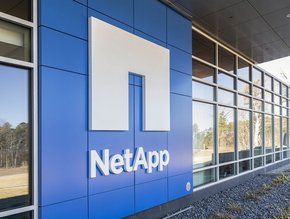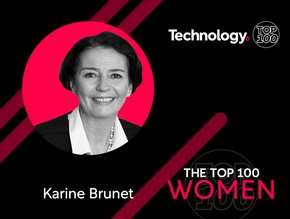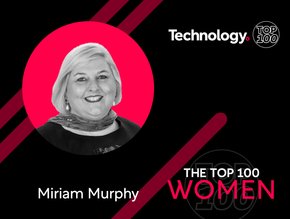Satya Nadella’s 10 Years as Microsoft CEO: From Cloud to AI
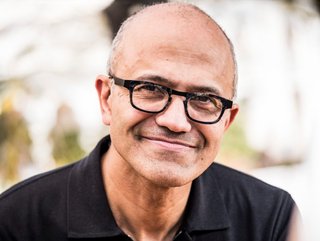
The Microsoft of February 2014, when Satya Nadella was announced as its latest CEO, was a very different company. With a market cap of around US$300bn at the time, under Nadella’s leadership Microsoft has grown to one of the largest companies in the world, with its value swelling to over US$3tn.
Originally from Hyderabad, India, Nadella earned a Bachelor’s degree in electrical engineering from Mangalore University, a Master’s degree in computer science from the University of Wisconsin – Milwaukee and a master’s degree in business administration from the University of Chicago.
Joining Microsoft in 1992, after a short spell at Sun Microsystems, Nadella quickly became known as a leader who could span a breadth of technologies and businesses to transform some of Microsoft’s biggest product offerings. Before being named CEO in February 2014, Nadella held leadership roles in both enterprise and consumer businesses across the company, including EVP of Microsoft’s Cloud and Enterprise group where he oversaw Microsoft Azure and the company’s repositioning towards cloud services.
Harnessing Microsoft Azure and AI to drive substantial growth
Originally announced in 2008, Microsoft’s Azure platform was officially released in 2010 and offers a range of cloud services, such as compute, analytics, storage and networking. Under Nadella’s leadership, Azure has grown to become one of the leading cloud computing platforms globally.
Today, according to Microsoft, 95% of Fortune 500 companies rely on Azure for trusted cloud services, with companies of all sizes and maturities using Azure in their digital transformation.
In its Q2 FY 2024 earnings this momentum helped Microsoft to a record quarter, driven by the continued strength of the Microsoft Cloud, which surpassed US$33bn in revenue.
“We’ve moved from talking about AI to applying AI at scale,” said Nadella recently in an investors relationship call. “By infusing AI across every layer of our tech stack, we’re winning new customers and helping drive new benefits and productivity gains across every sector.”
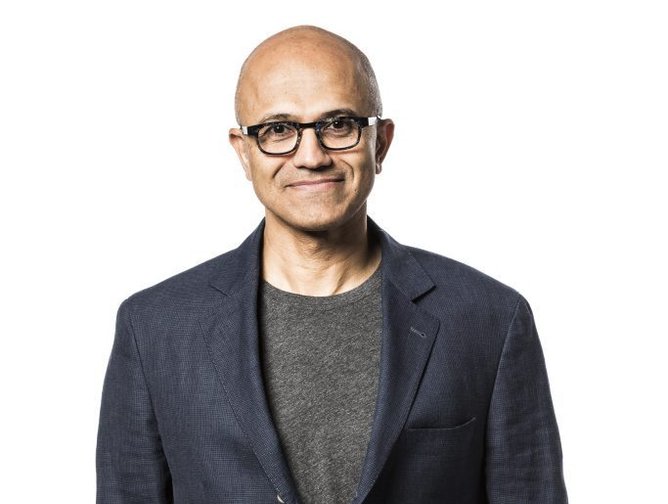
As Nadella comments, what he describes as Microsoft’s ‘AI advantage’ is helping Azure reach new heights.
“We now have 53,000 Azure AI customers,” he said. “Over one-third are new to Azure over the past 12 months.
“Our new “models as a service” offering makes it easy for developers to use LLMs from our partners like Cohere, Meta, and Mistral on Azure without having to manage underlying infrastructure.
“And we have great momentum with our Azure OpenAI Service. This quarter, we added support for OpenAI’s latest models, including GPT-4 Turbo, GPT-4 with Vision, Dall-E 3, as well as fine-tuning.”
Customers are also continuing to choose Azure to simplify and accelerate their cloud migrations, Nadella added.
“Overall, we are seeing larger and more strategic Azure deals, with an increase in the number of billion-dollar-plus Azure commitments.”
Focus on consumer and enterprise AI, and investment in OpenAI
With a Microsoft-sponsored study by IDC projecting that generative AI will add nearly US$10tn to global GDP over the next 10 years, Microsoft has embraced the generative AI revolution: building it into its consumer and enterprise offerings.
The company’s Copilot offering, an AI assistant feature for Microsoft 365 applications and services, is built into its Windows 11 operating system. Described as an ‘AI assistant at work,’ Copilot builds on Bing Chat Enterprise, but includes enterprise-grade security, privacy, compliance and responsible AI to ensure all data processing happens inside the user’s Microsoft 365 space.
Microsoft also has a well known relationship with OpenAI – reportedly owning 49% of the ChatGPT creator, and announcing a ‘multibillion dollar’ investment in the AI leader in January 2023, helping it become one of the world’s leading companies in the field of AI.
“A growing body of evidence makes clear the role AI will play in transforming work,” Nadella says. “Our own research, as well as external studies, show as much as a 70% improvement in productivity using generative AI for specific work tasks. And, overall, early Copilot for Microsoft 365 users were 29% faster in a series of tasks like searching, writing, and summarising.”
Microsoft completes a number of major acquisitions
Microsoft has made a number of acquisitions under the helm of Nadella. In addition to acquiring GitHub, Nadella has made a number of major acquisitions.
In October 2023 Microsoft closed its largest acquisition ever, exceeding the US$26bn it paid to acquire LinkedIn in 2016 and the US$7.5bn it reportedly paid to acquire Bethesda in 2021, as UK regulators approved its bid to purchase Activision Blizzard. The deal means Microsoft is now the world’s third-largest gaming company by revenue, behind market leader Tencent and Sony.
Microsoft has also announced Minecraft parent company Mojang, and voice recognition software company Nuance Communications.
All of these factors have helped Microsoft grow substantially over the past decade, with a report from Baron Durable Advantage Fund highlighting that the price of Microsoft stock has increased seven-fold since Nadella took over as CEO:
“The stock languished for almost 15 years while Apple, Amazon, Google and Facebook led the transition to mobile,” it says. “Satya Nadella finally took the reins in 2014 and immediately changed the company's focus from the Windows-centric, on-prem legacy businesses to a cloud-first platform that could be accessed and used from any device anywhere in the world.
"He also made the decision to open the platform to third parties, such as Linux, even though it was likely to hurt Microsoft's core Windows franchises. Nadella was willing to risk the high-margin on-prem business, recognizing that the world was going to change, and that cloud computing was going to be the future."
******
Make sure you check out the latest edition of Technology Magazine and also sign up to our global conference series - Tech & AI LIVE 2024
******
Technology Magazine is a BizClik brand
- NetApp Cloud Complexity: Reliable Data is Key to AI SuccessCloud & Cybersecurity
- AMD: Expansion, Growth and Doubling Down on AI InnovationAI & Machine Learning
- Globant to Drive Formula 1’s Digital TransformationDigital Transformation
- HPE: Businesses Must Tackle Blind Spots in AI StrategiesIT Procurement

